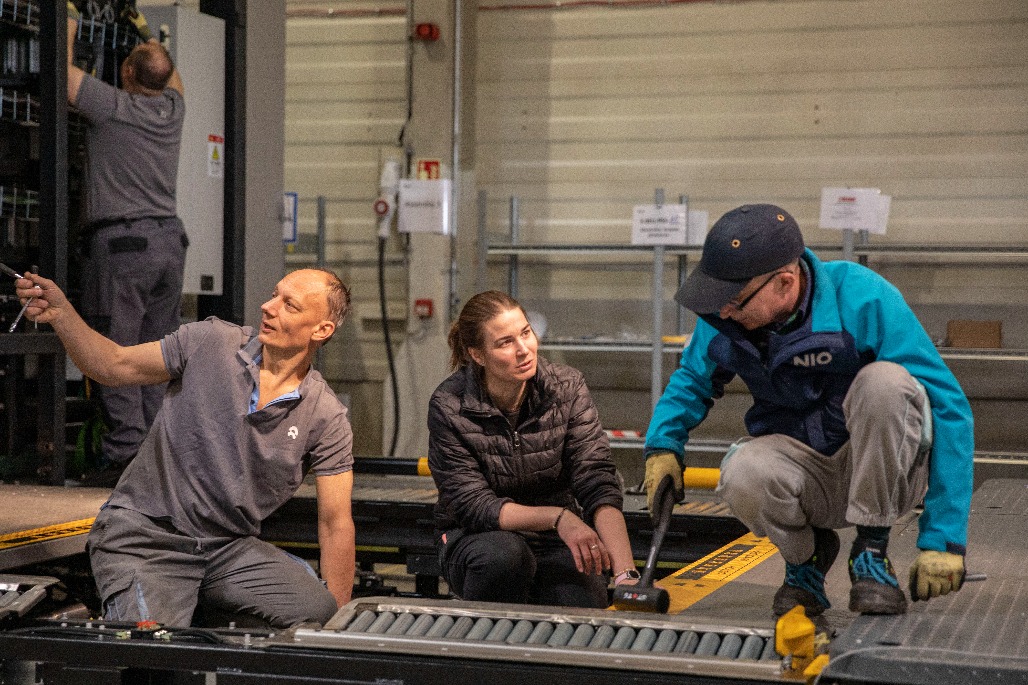VR headsets offer elderly people an immersive escape from care home life
By Barry He | China Daily Global | Updated: 2024-05-21 09:24
Virtual reality technology is now being used to help enrich the lives of the elderly. Retirement homes are experimenting with VR headsets, which can offer immobilized people a release from their daily indoor limitations and offer a range of therapeutic benefits.
Some residents at a care home in Devon, England are able to explore underwater tropical oceans and visit zoos and other attractions, all without needing to leave their armchairs.
The applications of VR are not just limited to gaming and visual experiences. Headset applications also create opportunities for senior citizens to socialize, play, and interact with fellow residents, friends, and family outside the care home. Loneliness is one of the biggest factors that increase disease risk in older people, with some scientists estimating it equates to the health risks of smoking a pack of cigarettes a day.
Some VR applications are incredibly useful for the families of elderly individuals. These VR experiences can show family members what it's like to live with certain disabilities, often providing an eye-opening experience for relatives who simulate day-to-day tasks within the VR application. This can serve as a catalyst for meaningful conversations within families, promoting empathy and understanding.
For some, particularly those in palliative care, temporarily escaping reality is an attractive option. VR headsets can teleport individuals with limited mobility to beautiful sights around the world-vast mountain ranges, tropical beaches, or bustling metropolitan cities. Given the imaginative nature of VR, time travel is also possible, allowing users to witness key historical moments or enter realms of fantasy.
Some VR applications can help the elderly reminisce about their past. These applications allow users to virtually walk down roads, towns, and landscapes that look as they did decades ago. This nostalgic experience can not only enhance general well-being but also provide invaluable assistance in treating dementia patients by unlocking memories.
In the same vein, learning can become more challenging with age, despite the cognitive benefits it offers. VR enables users to learn new skills hands-on, providing an easier method for retaining information from a first-person perspective. By gamifying learning and transforming it into a visual process, VR can help elderly residents engage in new subjects, skills, and languages, offering a constructive and active pastime.
Real life is not segmented into categories like lessons, experiences, or therapy, but instead comprises a blend of overlapping events and sensations that contribute to the complexity of our daily experiences. As VR technology evolves, it is anticipated that applications will offer multiple functionalities within broader, more immersive experiences. For example, a virtual trip to Paris could allow users to wander the city's streets, admiring its wonders while simultaneously practicing French with virtual locals within the application.
It is important to note that VR is not a substitute for real-world experiences and connections. While it can enhance and support social interactions, it is crucial for senior citizens to engage in physical activities with others to maintain health and fitness — areas where VR contributes minimally.
However, VR is making strides in this domain with the development of fitness-based applications that are gamified and tailored for the elderly.
The next few years are expected to see remarkable improvements in VR technology, with applications continuing to expand across society. This means that VR applications specifically designed for the elderly will undoubtedly become more realistic and immersive. It's hard to imagine the full potential of these experiences in several decades, especially with predictions that integration with the brain could enable sensations of touch and movement as well.
Currently, providing haptic feedback realistically remains a significant challenge for VR technology. However, some experts suggest that within 20 years, wearable suits capable of simulating the sensations of various materials — from wood to water and even human touch — might become available. Despite the potential ethical implications of this VR revolution, one thing is clear: the senior citizens of the future are unlikely to find themselves bored for long.
























